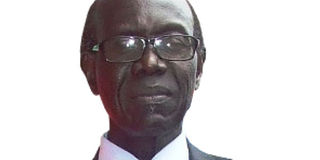Teachers deserve much better

Education, and especially high quality education, is the key to rapid, meaningful and steady economic and social development of Uganda and Africa. That is why the African Union (AU) wisely decided that all African countries should allocate 15 per cent of their national budgets annually for the education sector.
For the 2022/2023 financial year only 7.7 per cent of Uganda’s budget has been allocated for education which is inadequate, indefensible and unacceptable.
Against this background, a crisis in the education sector is a serious threat to the future of Uganda, especially Uganda’s efforts to achieve accelerated growth in order to become a middle-income country. The latest development in the ongoing row between government and Uganda National Teachers’ Union (Unatu) is, therefore, a cause of concern and worry for all patriotic citizens of Uganda and people of goodwill everywhere.
According to a story published in Daily Monitor of June 23 titled, ‘Govt to teachers: Teach or quit job’ government has threatened and ordered striking arts teachers to resume class by June 24 or risk being sacked. I am glad Unatu secretary general Filbert Baguma has courageously dismissed the empty, shameless and unnecessary threat with the contempt it deserves.
The callous, insensitive and shameless threat was conveyed in a letter by the permanent secretary of Public Service who writes: “Any government employed teacher who does not comply (with) this call will be regarded as having abandoned duty and resigned from public service in accordance with Uganda Public Service Standing Orders.”
Arts vs sciences is irrational
Science is the intellectual and practical activity encompassing the systematic study of the structure and behaviour of the physical and natural world through observation and experiment while arts is the expression of application of human creative skill and imagination.
A futile debate on the alleged supremacy of science subjects reminds me of a classic book titled, The Structure of Scientific Revolutions by Prof Thomas S Kuhn.
Unlike African leaders who ridicule arts subjects as useless, Kuhn who was a scientist, gives lots of credit to history.
The first chapter of his book published in 1962 is titled, ‘Introduction: A Role for History’ and he writes: “History, if viewed as a repository for more than anecdote or chronology, could produce a decisive transformation in the image of science by which we are now possessed. That image has previously been drawn, even by scientists themselves, mainly from the study of finished scientific achievements as these are recorded in the classics and, more recently, in the textbooks from which each new scientific generation learns to practice its trade.”
Kuhn spent 1958/1959 at the Centre for Advanced Studies in Behavioural Sciences which opened his eyes to the arts and social sciences. In the preface to his book he writes: “…spending a year in a community composed predominantly of social scientists confronted me with unanticipated problems about the differences between such communities and those of the natural sciences among whom I had been trained. ”
“Both history and acquaintance made me doubt that practitioners of the natural sciences possess firmer or more permanent answers to such questions than their colleagues in social science.”
The point Kuhn makes eloquently is that it’s a fallacy to draw a line between arts and science subjects. It’s frankly ignorant and mediocre people who erroneously think that science subjects are superior to arts subjects.
In my opinion, the decision to pay science teachers much higher salaries than arts teachers is indefensible, irrational, unethical and unacceptable!
Mr Acemah is a political scientist and retired career diplomat. [email protected]




